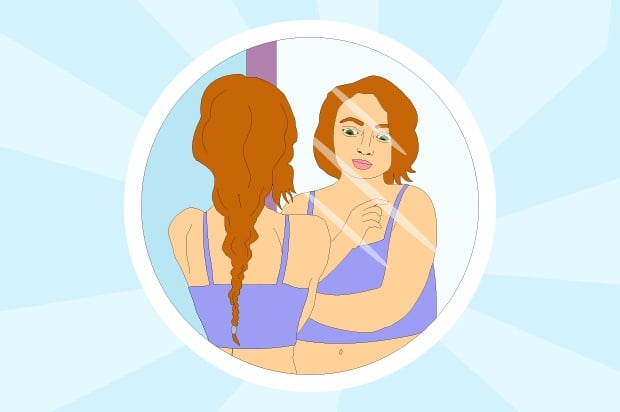Ambassador voices: My self-harm story


Trigger warning: This article contains references to self-harm and eating disorders.
Hi my name is Sharu Patil. I’m doing biology, chemistry, and psychology at A-level. I’m so happy to be able to work with The Mix and share my lived experience and connect with you today.
I think when we think of self harm we can often see that stereotype of someone, usually a young person, who regularly cuts themselves and hides and their scars. But what if you don’t have scars? How will you prove yourself? How will you prove to the rest of the world that this exists; that is ,this pain that you feel is real? I didn’t have scars and I don’t have them now but I felt pain and guilt and anger and that was real and still is. My story, and possibly many people’s stories, don’t conform to this stereotype but it was real and it is still valid.
How I understand self-harm
I think it’s pretty explicit in the name: something that harms you. So, technically, anything that isn’t good for you is harming you. And that’s way I think of self-harm. If you’re not caring for yourself then you’re harming yourself. This can be as simple as having negative thoughts about yourself. You know that voice, the one that sits on its throne and judges you, criticizes you, diminishes your worth. That’s also self harm.
For me this voice and its power and command amplified and drove me to the point of breaking when my anorexia began. Now, I can guess what you’re thinking : why is she talking about anorexia in an article about self-harm? But I consider it to be self-harm. I think we often neglect to think that; because I’m not eating, I’m hurting my self so this is self harm. There isn’t a right or wrong or category that you have to fall into to classify yourself as self-harming and so there isn’t ever wrong to ask for help for self-harm.
I always thought that it had to get ‘bad enough’ before I could ask for help. But there isn’t a scale that measures some people being ‘bad enough’ to ask for help and other not and I hope you know that If you’re reading this and you’re doubting the validity of your condition like if you think you’re making everything up in your head like I thought I was, you’re not. You’re not and you should ask for help.
Asking for help for self-harm
When I asked for help from my GP she asked me “Do you need sutures (stiches) for your cuts?”. And I could not be more crushed. I reverted back to that mentality of my condition not being deserving of help. I came up with very possible reason of why it wasn’t ‘bad enough’: the NHS didn’t take of someone who wasn’t even that sick, my cut were not cuts etc. Don’t ever let anyone, especially yourself, tell you that you don’t deserve help; that you’re just not sick enough. If you also experience/ experienced something similar, gather your courage and repeat to yourself over and over, like mantra, that ‘I need help and I deserve it so I’m going to get it’ and you’ll find someone.
The Mix has some amazing people who will listen without judgement (insert some links).
After that, I finally got the courage to talk to my therapist about this and I got help. And the road to recovery, as my best friend likes to say, is one not just going up and down, but one which meanders and has many U-turns and I’m still on that road but I haven’t relapsed since.
I hope my story offers some hope; as I like to think of hope: a candle cupped in two palms offering a flickering in glow in the dark and I really hope it helps you realize that no matter what you’re going through, if it’s affected you then it’s valid in its entirety and deserving of help.
If you are looking for support with self-harm, head to our self-harm hub page for a wide range of support and advice.
Get in touch with our team who are there to support you with anything and everything.
Next Steps
- selfharmUK provides information and advice about self harm. You can ask a question to their expert panel or share your story.
- Our Crisis Messenger provides free, 24/7 crisis support across the UK. If you’re aged 25 or under, you can text THEMIX to 85258
- If you're under 25 and would like free confidential telephone counselling from The Mix to help you figure things out complete this form and we'll call you to arrange your first session.
- Mind offers advice and support to people with mental health problems. Their helpline runs nine to six from Monday to Friday. 0300 123 3393
- Chat about this subject on our Discussion Boards.
By Holly Turner
Updated on 05-Mar-2021
Sorry, comments closed
No featured article














